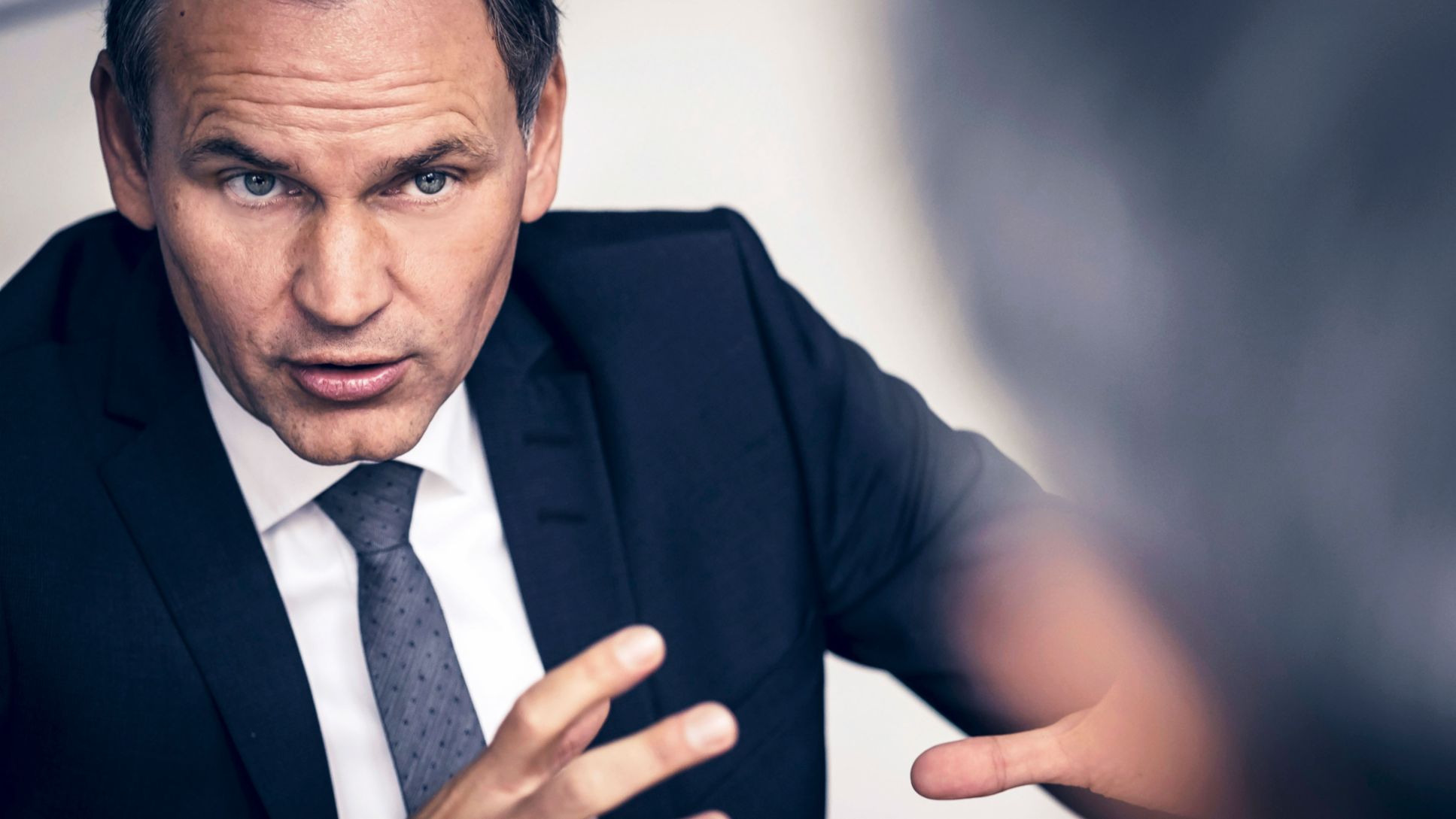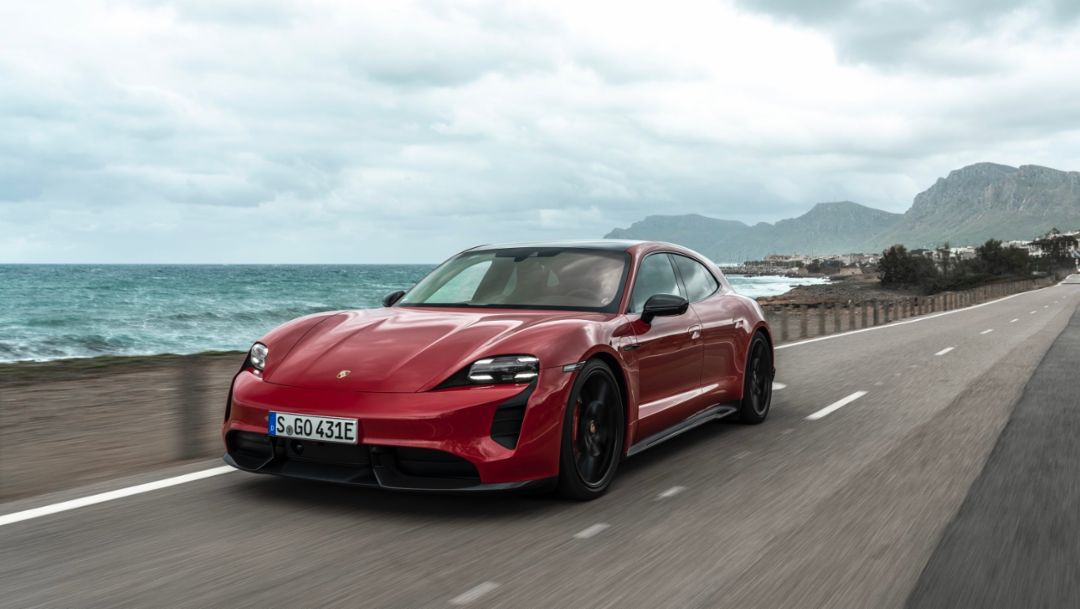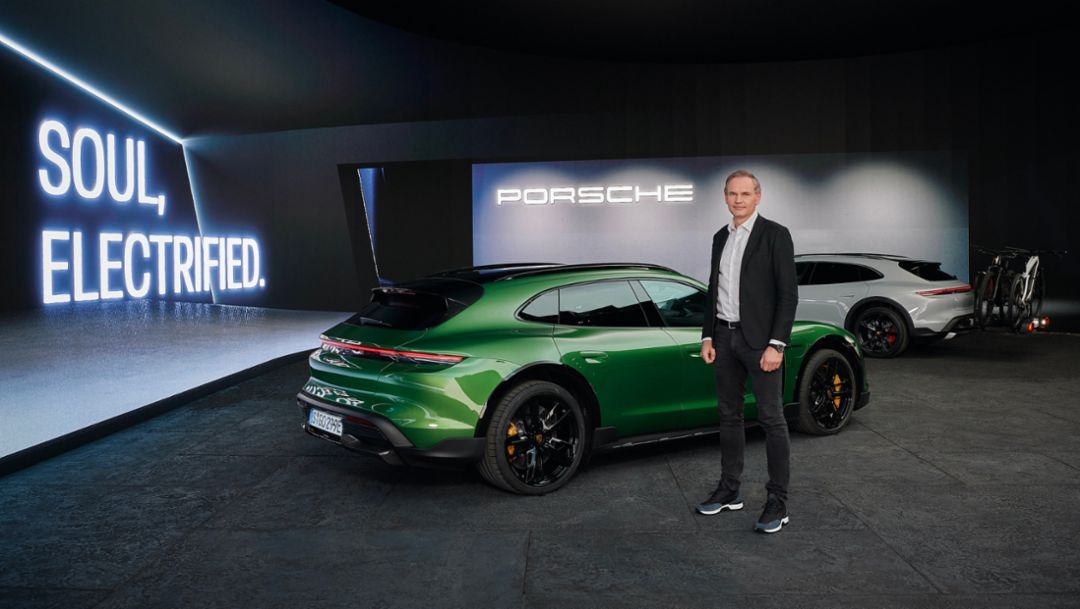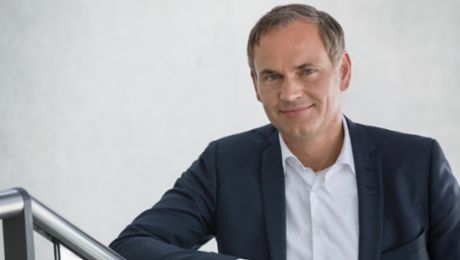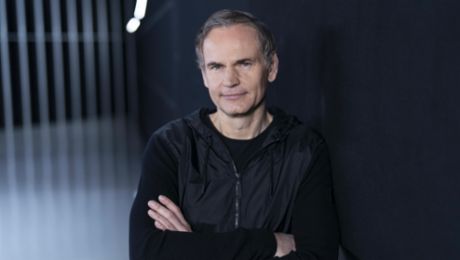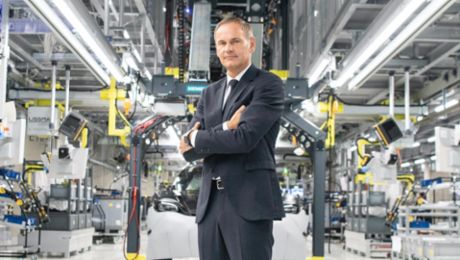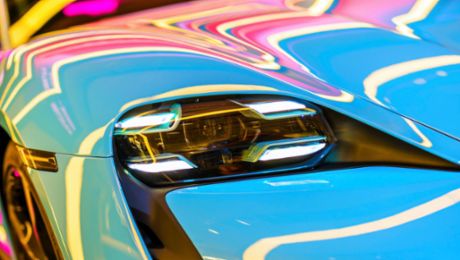Mr Blume, the coronavirus continues to spread and there is no end in sight to the semiconductor crisis. Is Porsche facing a difficult year?
Oliver Blume: Fortunately, Porsche is a well-equipped and robust company. But at the same time, this double crisis is also challenging for us. The health of our employees is our absolute top priority. Our corporate culture helps in times of crisis: supporting one another, working together as a team – just as a family does.
Semiconductors are scarce, there's nothing you can do about that.
Blume: We try to stay flexible and manage every day in the best possible way. And we benefit from being part of the Volkswagen Group. Volkswagen buys in bulk, and that brings economies of scale. And due to our positive margins, Porsche receives a fair amount within the Group. I am therefore cautiously optimistic about 2022.
But there is no end in sight for either of these issues.
Blume: By all means, the coronavirus and the shortage of semiconductors will continue to pose significant challenges for us this year.
And what does that mean?
Blume: The coronavirus demands a different kind of leadership: physical and digital. With systematic, responsible management of crisis situations. And again, it's about developing team spirit, leading with passion and vigour. In terms of semiconductors, the entire Group's contact with suppliers and manufacturers has become much closer and more transparent. That is a positive thing, however it remains challenging.
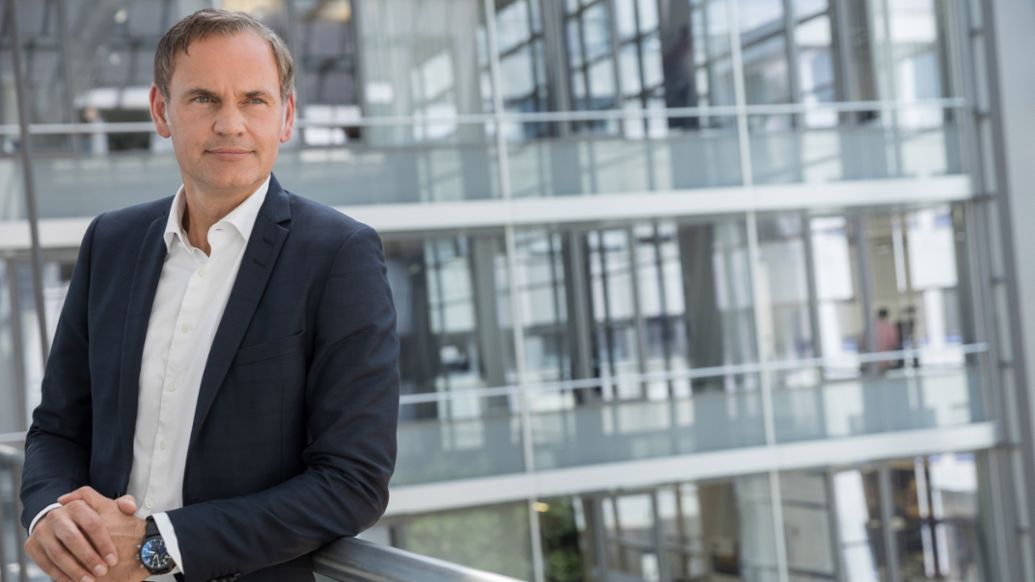
Crises are sometimes an opportunity. What lessons have you learned from this double whammy?
Blume: Here, I really do think in terms of opportunities. We have become even more focused. For example, we directed considerable attention to our fixed costs from the very beginning of the pandemic. This has enabled us to further reduce the break-even point and allowed us to become even stronger on the financial side, with the clear objective of keeping our ambitious margin target of 15 per cent fixed for 2022 as well.
Was Porsche also able to achieve this target of a 15 per cent profit margin last year?
Blume: The exact figure has not yet been determined. We will announce these numbers at the annual press conference in March. But we have improved the cost structure and at the same time the delivery figures are looking good, so I feel quite relaxed.
Can you explain why people have such a strong desire for sports cars in this crisis environment?
Blume: Many people want to fulfil a dream with a strong brand like Porsche, for example. Top quality, timeless design, high-performance products. All this explains why we were able to deliver more cars to customers than ever before. Last year, we had more than 50,000 orders for the 911 alone. We are continuously expanding our model range in an attractive way and that is one of the factors of our success.
One example being the Taycan electric vehicle?
Blume: Exactly. With this innovative vehicle, we have really been able to show what is possible with an electric sports car. The Taycan is extremely popular with experts and customers alike. In comparison with 2020, we managed to double sales – 41,296 vehicles to be exact – putting it on a par with the 911, which also sold better than ever. Who would have thought that a few years ago? With our well-positioned product range, we also broke through the 300,000-cars mark last year. However, we don’t focus on volume as a main reference figure. For us, exclusivity, quality and unique products take precedence over unit sales.
Despite all the sales successes: the Taycan has also had problems. You have had software problems, now there are rumours about overheated batteries...
Blume: ... every product launch faces challenges at the beginning. Especially with innovations and new technology. As a general rule, when issues arise, we look into them very carefully. We even investigate the rumours.
While other companies are struggling, and despite the crisis, Porsche is selling more cars and still earning good money. Where will you go from this rather comfortable position?
Blume: We will maintain our pioneering spirit and courage and, at the same time, stay grounded and continue to strategically sharpen Porsche's profile. For example, in the areas of digitalisation and e-mobility we are making faster progress than planned. Already last year, one in four vehicles sold worldwide was electrified.
Does that include hybrids, i.e. combustion engines with electric powertrains?
Blume: Yes, but the proportion of fully electric vehicles is larger now. The success of the Taycan was a key driver. For us, this confirms our strategy. We started to focus on electromobility earlier than other manufacturers – and we’re still on the right course.
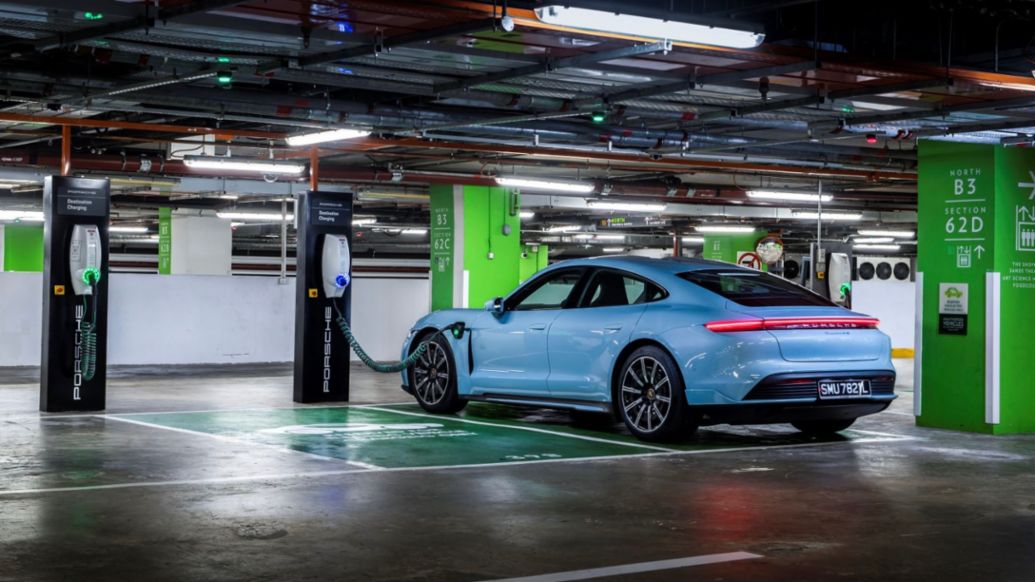
Porsche's self-confidence is growing with its success. Is the company setting itself apart from its parent company, Volkswagen?
Blume: For me, it's less about self-confidence and more about entrepreneurship. We've been successful with that for years. We use components from the Volkswagen Group and vice versa. The important thing is that Porsche's success also benefits the Group as a whole.
The merger of Porsche with Volkswagen was once justified by the fact that your company needed the engines of the parent company. Porsche would not have been able to meet the development costs on its own. Does this logic still apply?
Blume: We have achieved fantastic growth in recent years, and that would not have been possible without Volkswagen. So, we are benefiting from the connection. At the same time, we are extremely focused on our own issues and their success.
Could you manage without Volkswagen today?
Blume: A theoretical question. In terms of financial strength, our cash flow speaks for itself. Fundamentally, we need strong partners for transformation. We can't and don't want to do everything on our own. And for those issues where we can't do everything ourselves, we look for suitable partners. For certain areas, this is the Volkswagen Group.
So the crowning achievement would then be an IPO for Porsche?
Blume: Your words, not mine! Joking aside, we are of course registering that there is a great deal of interest from the public and in the markets. The decision on this lies solely with the Volkswagen Group. So we can't make any statement on that. What is clear from the figures is that our company is very well positioned and resistant to crisis. We are a sought-after brand with a clear strategy, a high level of technological expertise, and are also very ambitious when it comes to sustainability. We are aiming for a CO₂-neutral balance sheet across the entire value chain by 2030.
So that would be your story for the IPO?
Blume: We don't tell stories. Porsche delivers, and has done so consistently for years. We succeed because we set a decisive course in good time. And we have a great team, without which the constant success would not be possible.
Does that success include the internal combustion engine or does that have an expiry date for you?
Blume: We don't have a specific date. In the end, it's up to the customers and the regions of the world. The special task for us is to make internal combustion engines that run on synthetic fuels virtually CO₂-neutral. To this end, we are investing in the development of eFuels.
Do you think these man-made fuels have a chance? The prices are still extremely high.
Blume: That's our plan. We want to produce the synthetic fuels where sustainable energy is available in unlimited quantities – for example, at our pilot plant in southern Chile. Strong winds blow there almost all year round. Looking ahead, we think it is realistic to expect this price to drop below a level of two US dollars per litre. And then things will get interesting. We see ourselves as a pioneer of sustainable mobility with a focus on e-mobility, sensibly supplemented by eFuels. These are not in conflict with each other.
Porsche wants to be a technology driver?
Blume: We are indeed in a pioneering role. Just as we have led the way in electromobility. With more than one billion vehicles in use worldwide, it is already possible to achieve a percentage blend in the fuel. In addition, the largest field of application for eFuels is in aviation and shipping, where there is great demand.
Will Porsche also earn additional income in the future from the sale of systems for the production of such eFuels?
Blume: For now, it's a matter of getting the technology off the ground. We see our own areas of application for eFuels: for testing or initial filling of a 911, as well as for our Experience Centers or motorsport. At the same time, we are continuing to develop our electric vehicles. In the process, we are also looking at what form of energy our customers will be using in the future. That's why we will invest more than one billion euros in sustainable energy sources over the next 10 years: solar power plants, wind turbines, and eFuels.
Is that the new profile of a car manufacturer? You also have to cover sustainable energy production?
Blume: Sustainability is a global responsibility and is only credible if it is thought of holistically. Porsche alone will not save the world but we see ourselves as pioneers, and as a role model. With our actions, we want to show how it can be done and show responsibility within society. But we also want to motivate others to join.
Isn't that just window dressing? Porsche models weigh a great deal and travel very fast – which means they consume a lot of fuel.
Blume: I have to disagree with that. Take our Panamera: in Europe, we already sell more than 70 per cent as plug-in hybrids. In cities, the Panamera can be driven with zero local emissions. In 2030, we want to deliver around 80 per cent of our vehicles with an electric drive – either as a hybrid or fully electric. These two examples show that Porsche is making its contribution to sustainability.
Then at this point we have to ask about the current state of development: have you managed to meet the CO₂ targets for 2021?
Blume: We are delighted that the Taycan has been so well received in the market. And also about the high hybrid share of the Cayenne and Panamera. So we're very optimistic that we've achieved the CO₂ targets that we set for Porsche in the Volkswagen Group for the European fleet.
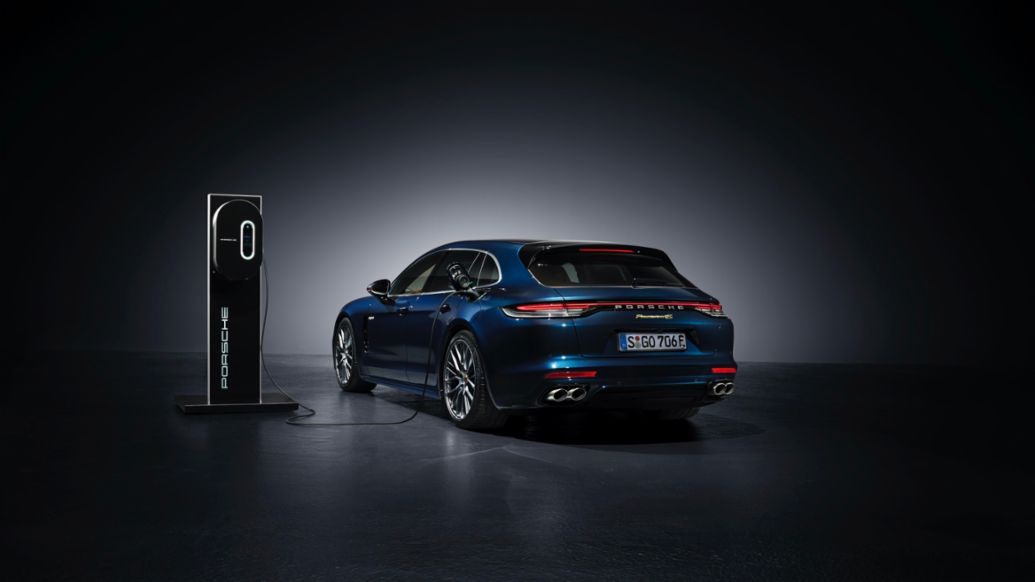
If we look back over its history, Porsche has had an image that has nothing whatsoever to do with sustainability. Are your customers going along with the change?
Blume: Absolutely. Our customers expect it, and they welcome the fact that we are taking a sustainable approach. We combine sportiness with sustainability, and our success in the global markets proves us right.
The 911 is your icon. The car is to be hybridised. When will that be?
Blume: The 911 is part of our sustainability strategy. The important thing is that when we think about hybridisation for this vehicle, it's not in the sense of a plug-in. It's more about features from motorsport, in other words very dynamic hybrid drives with high recuperation performance. Like the 919 Hybrid, with which we won the 24 Hours of Le Mans three times in a row.
When will such a car be available?
Blume: I won't give you a year. We'll be more specific when the car is actually ready. But you can start looking forward to it now!
How will you develop the entire model range over the next few years?
Blume: We have set up our product strategy in a flexible way. In each of our segments, we have a wide range of powertrains – internal combustion engines, hybrids and electric vehicles. Next year, for example, the new all-electric Macan will be added as an attractive component. And I don't want to reveal any more than that for today.
Info
Interview first published in Handelsblatt.
The interview was conducted by Stefan Menzel and Martin Murphy.
